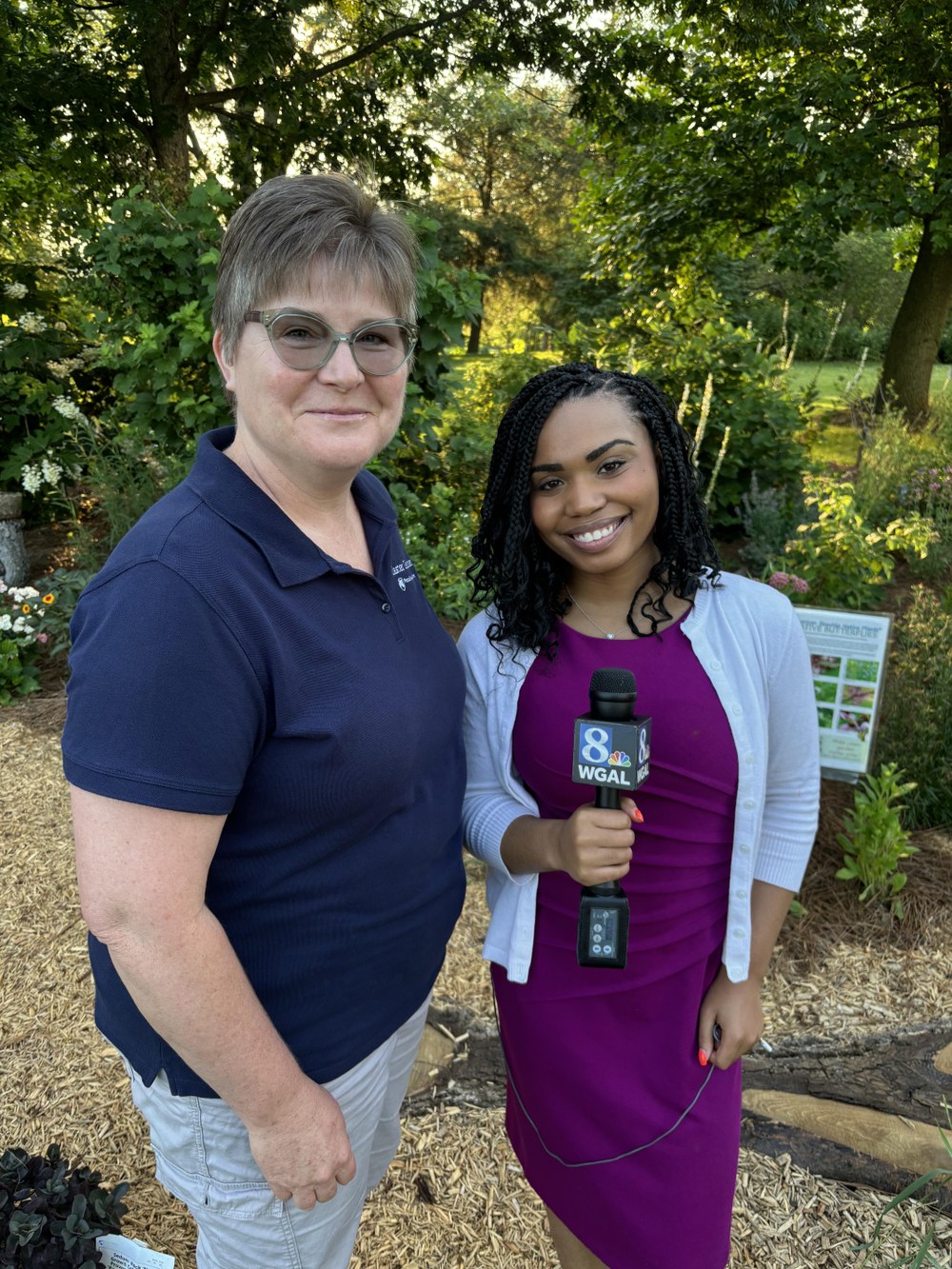Posted: June 20, 2024
We kicked off National Pollinator Week with a sunrise visit from WGAL's Gabriel Thomas.

Master Gardener Coordinator Christa Shoreman and WGAL's Gabriel Thomas.
Live broadcast began at 5:00 a.m. and by the time we were finished, honey and bumblebees were hard at work in the Demonstration Gardens at Southeast Agricultural and Extension Center.
Here are some of the points we covered:
What are pollinators?
Bees (native and honeybees), butterflies, moths, flies, bats, beetles and hummingbirds.
Why are they important?
A continuous supply of food depends on ongoing pollination. We eat the end result of successfully pollinated flowers (fruits, nuts, grains) and we eat the roots (carrots, beets), stems (asparagus, celery, broccoli) or leaves (lettuce, kale, spinach) of the plants that eventually flower and make seeds for next year's crops.
Many pollinators are in decline.
How can home gardeners help?
By Providing:
Food--native flowers, trees, and shrubs.
Water--a shallow dish with pebbles.
Shelter/nesting sites--bare soil, last year's stems, rock walls, and piles.
Protection from chemicals that can harm them.
A short clip from our time together can be viewed online.
Visitors are welcome to check out pollinators in action seven days a week until August 31st at the Southeast Agricultural Research and Extension Center at 1446 Auction Road in Manheim.

